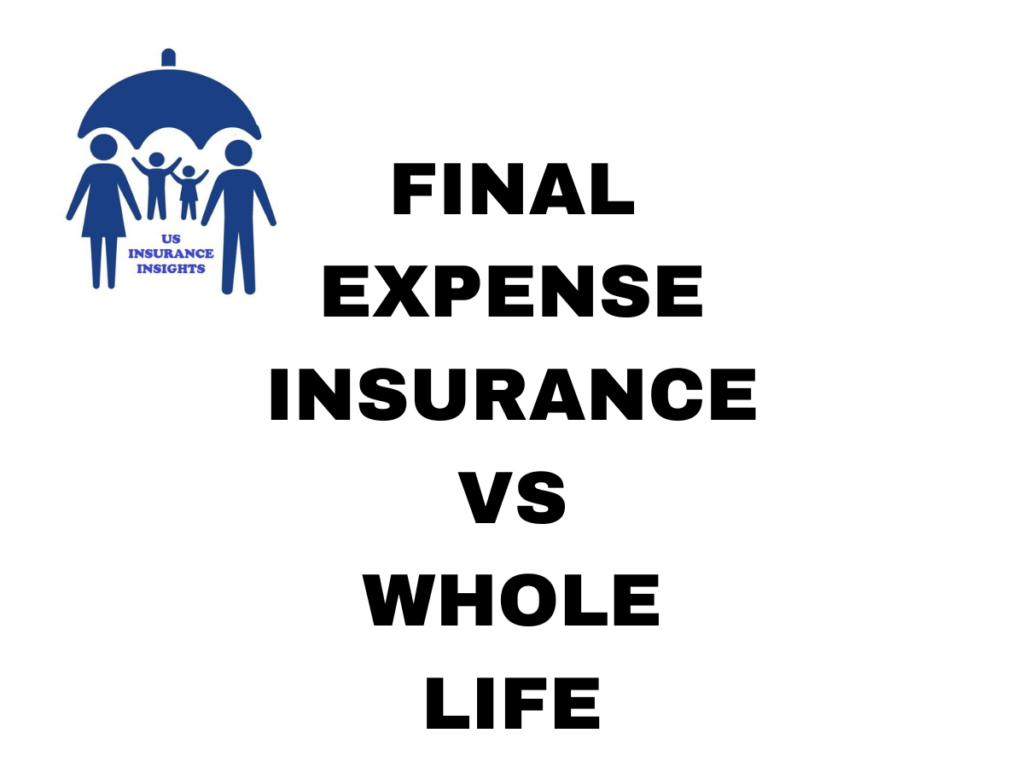Understanding the Basics of Final Expense Insurance vs Whole Life
When making plans, many people wonder about the difference between final expense insurance and whole life. Picking the best insurance coverage gives both you and your family financial protection. However, which type would be most appropriate for what you require? Let us look at what it means in an easy way.
John, after retirement as a teacher, wanted to make sure his family could cover his funeral costs. His friend mentioned final expense insurance, at the same time John became aware of whole life insurance. Because he was not sure what to do, he searched for more information. If you want to learn about the differences and what to buy, this guide will assist you like it did John.
Final expense insurance vs whole life
It is a kind of whole life insurance that pays for funeral costs, medical expenses and other small bills you might have before death. It is sometimes labeled burial or funeral insurance because it mainly exists to help your family meet funeral-related expenses.
Fundamental Facts about Final Expense Insurance
- Cheaper Prices: Generally, term life insurance works out to be less expensive.
- Ranges of $5,000 to $50,000 are common for smaller coverage amounts.
- For the most part, guaranteed acceptance plans do not ask for a medical exam.
- The Pricing Does not Rise: Once you pay, your insurance plan will always hold the same rates.
- Beneficiaries get their money fast, which helps them pay for urgent expenses.
Episode: Lisa’s father was dead before anyone suspected anything. She did not have to worry about funeral costs because he had final expense insurance. Everything was paid from the claim without any problems.
What is meant by Whole Life Insurance?
Whole life insurance remains active your whole life and pays a death benefit, as well as adds value to its cash account over the years. It serves you better than final expense insurance in many situations.
Just as its name suggests, this insurance policy offers coverage that lasts for the policyholder’s whole life and here are some of its major features.
- Premiums need to be paid in order for the coverage to stay active forever.
- Death Benefit can be between $100,000 and several million dollars.
- Part of your premium goes into savings that increase over the years.
- You Have To Pay Higher Premiums: Since there is cash value, the premiums rise.
- Policies Can Be Borrowed Against: Policyholders are able to get loans by using their cash value.
Anecdote: Robert was able to pay for his grandson’s college because he had the cash value from his whole life policy. It allowed him to use money as he liked, but also look after his family for the long run.
What makes Final Expense Insurance not the same as Whole Life Insurance?
Final Expense Insurance is meant to help with final costs, Whole Life Insurance lasts a lifetime and offers savings and it is a good match for seniors and people who want to save and plan over the longer term.
How Do You Decide Which to Choose?
Final Expense Insurance Is Ideal When:
✔ You want a low-cost policy.
✔ You are concerned about covering your funeral expenses and small loans.
✔ You need a policy that accepts anyone, regardless of health.
✔ You want an easy way to get insurance, without having to go through a medical exam.
Select Whole Life Insurance If:
✔ You would like to give your loved ones a bigger death benefit.
✔ You are aiming to create cash value in a policy you keep for many years.
How to Pick the Right Health Insurance
- Review Your Finances: Determine what kind of life insurance your family would need.
- Check quotes from two types of insurance: final expense and whole life.
- First, see if you are eligible. People with health issues may prefer final expense insurance.
- When you prefer investment returns, whole life can offer you those.
- Talk to a financial expert to get the advice you need when making a decision.
If you are set with money for the funeral, whole life insurance may give you extra benefits after a few years.
Final Thoughts
Each type of insurance, final expense and whole life is good for different situations. When you are mostly worried about the cost of a funeral and want lower premiums, final expense insurance is a good option. If you want to build wealth along with protection, choosing whole life insurance is best.
What is essential is that your insurance covers you sufficiently and is still within your spending limit. Spend time choosing, gather needed information and protect your loved ones today!
NICE INFORMATION


2 thoughts on “Final Expense Insurance vs Whole Life: Which One is Right for You?”